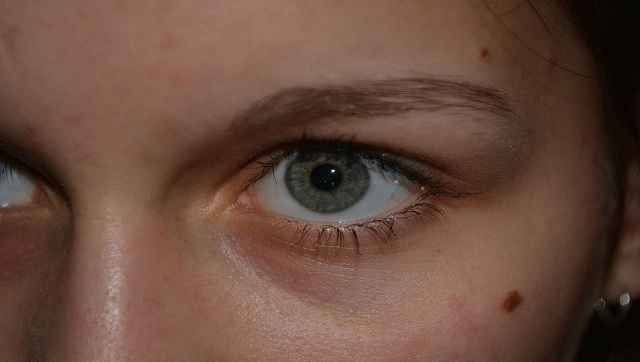Deteriorating eyesight is a health issue that is becoming a major concern for many. Cataracts, macular degeneration, glaucoma and eye cancer might have been usually linked with increasing age, especially crossing 40, but that’s slowly changing. Excessive exposure to digital equipment, screens and ultraviolet light has increased the risk of developing eye diseases. Proper care for your eyes has, therefore, become a very relevant issue and a study published in The Journals of Gerontology suggests that an easy therapeutic method might prevent eyesight decline as we age. Researchers based in the US have found that looking into a deep red light for three minutes every day can improve your vision. Red light for your eyes The study included 12 men and 12 women between the ages of 24 to 72 years, and all 24 participants were given a handheld flashlight emitting a red light of 670 nanometers wavelength. The participants then looked at the red light for three minutes each day for two weeks, at the end of which period they showed 14 percent improvement in the ability to see colours. The improvement was more significant in those above 40 years of age. The researchers behind this study are hopeful that if their findings are supported by other studies, and if the US Food and Drug Administration (FDA) approves it, handheld red light devices could become an easy home-based therapy anybody can access to reduce eye degeneration with age. Things you can do now While researchers are working on new methods you can use to improve your eyesight and reduce risks of eye degeneration, there are a few other things you can do to maintain proper eye health. The following are five easy practices, all recommended by the American Academy of Ophthalmology (AAO), that should be adopted in the daily routine. 1. Get nutrition: The nutrients you absolutely need for eye health are vitamin C, vitamin E, zinc, lutein, zeaxanthin and omega-3 fatty acids. This makes eating citrus fruits, bell peppers, carrots, broccoli, sweet potato and leafy green vegetables like spinach a must, as they can help reduce the risks of macular degeneration while improving your retinal function. 2. Wear protective eyewear: UV blocking sunglasses can not only protect your eyes from sun damage but also reduce the risks of wrinkles around the eyes and cancer. Protective eyewear is also important to avoid chemicals, sharp objects and disease-causing bacteria or viruses from entering the eyes. This is also relevant to the current COVID-19 pandemic, as the virus can enter your body through the mucous membrane in the eyes. 3. Know your history: You might have a greater risk of eye diseases if cataracts, diabetic retinopathy, glaucoma and age-related macular degeneration run in your family. So, knowing your family’s medical history can help you determine if you need to go in for more check-ups in a year and need extra preventive measures, like dietary supplements. 4. Don’t ignore eye fatigue: Working on your computer or phone for hours can lead to eye fatigue, which in turn might cause issues like dry eye and presbyopia. The AAO recommends the 20-20-20 rule to avoid eye fatigue - look up from your work every 20 minutes at an object 20 feet away for 20 seconds. 5. Get examined: Most people go to only opticians and optometrists to get a vision exam and to get fitted with glasses. But going to an ophthalmologist at least once every year is vital because this is the healthcare professional who can give you a full spectrum of eye care. For more information, read our article on How to improve eyesight. Health articles in Firstpost are written by myUpchar.com, India’s first and biggest resource for verified medical information. At myUpchar, researchers and journalists work with doctors to bring you information on all things health.
While researchers are working on new methods to reduce risks of eye degeneration, a good diet, addressing eye fatigue and regular examination by an ophthalmologist can go a long way in proper eye health
Advertisement
End of Article


)

)
)
)
)
)
)
)
)



